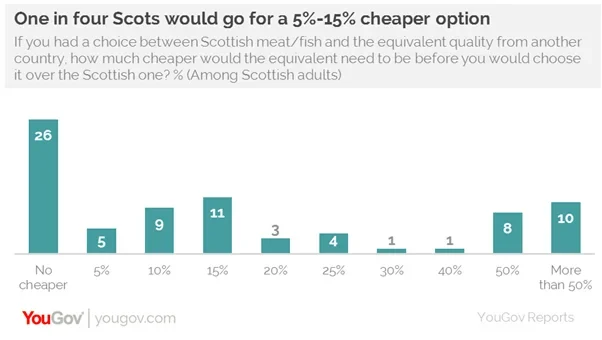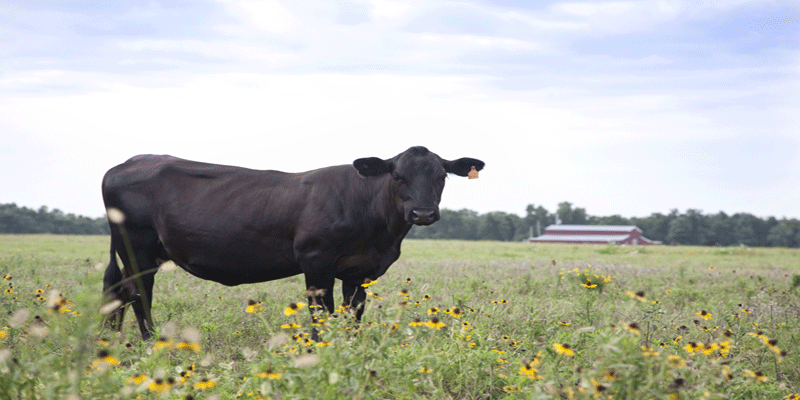Although they want to buy Scottish food and drink, one in four Scots would buy a non-Scottish alternative if it were 15% cheaper, new research from YouGov shows.
The Buying Scottish Food and Drink report shows that currently, three quarters (76%) of Scots prefer to buy Scottish food and drink where possible, with just 18% preferring not to. However, as inflation squeezes family budgets, the research shows that while most Scots are committed to buying Scottish, many would consider non-domestic food and drink brands were they notably cheaper.
While over a third (38%) would still purchase Scottish food and drink even if they faced cost pressures, more than four in ten (42%) would purchase the items less frequently. The research finds that fewer than one in ten (8%) would stop buying Scottish food and drink altogether and look elsewhere for cheaper alternatives.

YouGov’s data suggests that Scottish consumers would want to make considerable savings before they considered switching away from domestic fare. The research shows that were non-Scottish produce 15% cheaper, then a quarter (25%) of Scots would stop buying Scottish. Furthermore, approaching one in five (18%) would have to see a saving of 50% or more before they would be tempted to move away from purchasing Scottish food and drink.
The report highlights the reasons Scots like to buy domestically-produced food and drink. Two thirds (67%) want to support Scottish farmers and the same proportion (67%) want to support the Scottish economy and jobs. Over half (56%) believe that Scottish food is better.
Scots have great enthusiasm for supporting domestic products, companies and jobs – and believe their food and drink to be of good quality. However, economic conditions may start to squeeze consumers’ finances over the next few years as inflation rises. Should alternatives become relatively cheaper, Scottish food and drink producers could start to feel the pinch on the domestic front. Advertising campaigns stressing the practical and emotional impact of buying Scottish may, therefore, become important to producers looking to maintain market share in potentially tricky conditions.
Image: Getty








